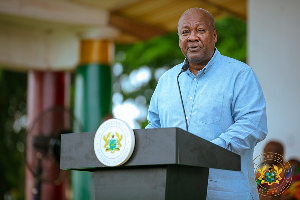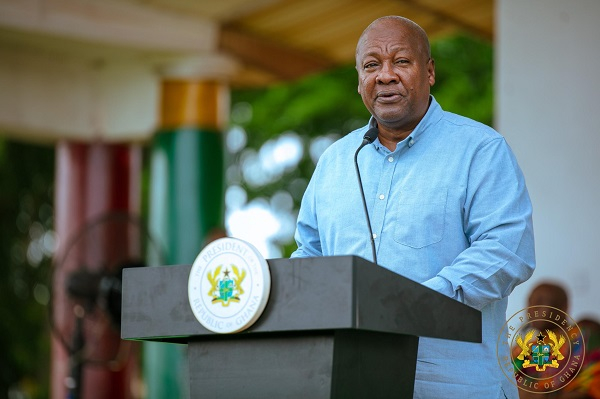 President John Dramani Mahama
President John Dramani Mahama
Constitutional lawyer Raymond Bidema has asserted that the Minority Caucus in Parliament lacks the legal standing to compel President John Dramani Mahama or the Attorney General and Minister for Justice, Dr Dominic Ayine, to respond to recent allegations made by embattled Chief Justice Gertrude Araba Esaaba Sackey Torkornoo.
This follows calls by the Minority in Parliament urging President Mahama and the Attorney General to publicly respond to claims made by the suspended Chief Justice against the state.
At a recent press conference, Justice Torkornoo raised concerns over procedural breaches, human rights violations, and what she described as a conspiracy to remove her from office.
In response, Government spokesperson Felix Kwakye Ofosu dismissed her remarks, calling them “most regrettable.”
However, addressing the media, Member of Parliament for Manhyia South, Nana Agyei Baffour Awuah criticized both the President and the Attorney General for their continued silence more than 48 hours after Justice Torkornoo’s explosive revelations.
In a sharp rebuttal, speaking to Tutuwaa Danso on Starr Today on Friday, June 27, Lawyer Bidema argued that the Minority’s demands fall outside their constitutional mandate and risk politicizing a matter that should be resolved through judicial channels.
“What is the legal basis for asking either President Mahama or the Attorney General to respond? Was Her Ladyship addressing the Attorney General, the President, or the good people of Ghana? Clearly, what the Chief Justice did three days ago is unconstitutional. The Constitution provides for such matters to be handled in camera. It has internal mechanisms for addressing grievances through due process.
“I do not believe there is any provision in the Constitution that permits an embattled Chief Justice to publicly address the nation in the manner she did. Her actions are not anchored in any law. Since when did it become a settled practice to call on the President or Attorney General to respond to public commentary by an individual? Is this a new precedent? If so, it is an unwise one.”
Bidema stressed the importance of protecting the integrity of national institutions:
“We cannot politicize every matter in this country. We must be cautious about the precedents we set—they may not serve the nation’s best interest. Over the past two years, the Chief Justice herself led the Judiciary.
“Yet the picture she painted suggests the Judiciary is no longer a viable channel for justice. Instead, she implies the public arena is the only space left for redress. That’s a dangerous narrative for our democracy.
“So, I ask: when did she come to the realization that the Judiciary isn’t working? Is it only now, when she is personally facing challenges? Or is this the same institution she led until recently?”


